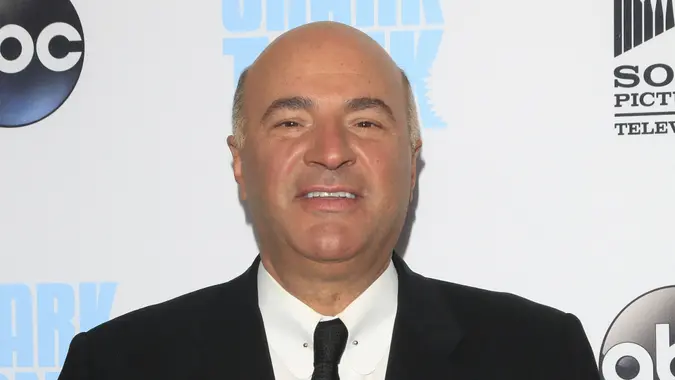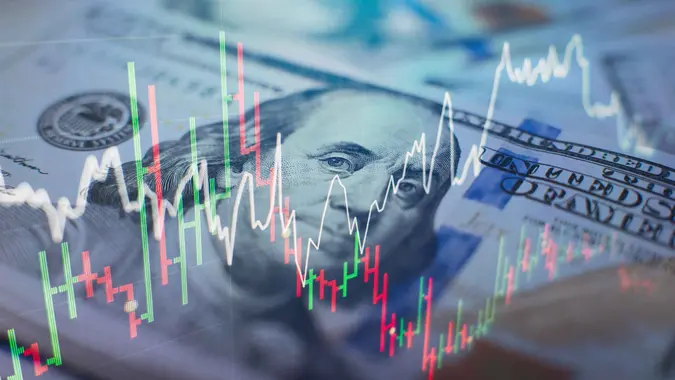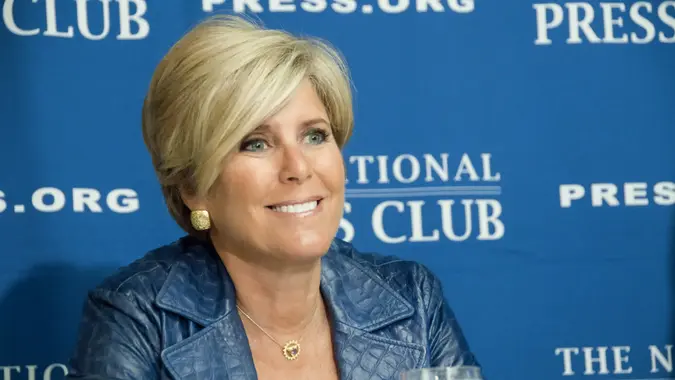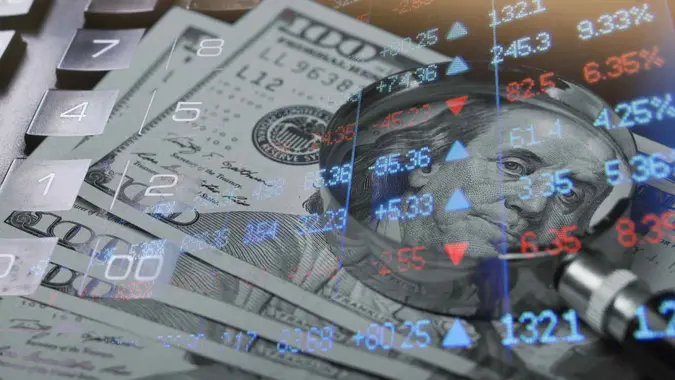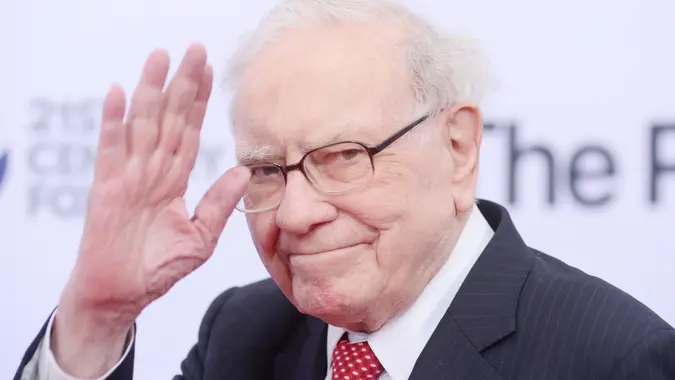Where Do Millionaires and Billionaires Keep Their Money?

Commitment to Our Readers
GOBankingRates' editorial team is committed to bringing you unbiased reviews and information. We use data-driven methodologies to evaluate financial products and services - our reviews and ratings are not influenced by advertisers. You can read more about our editorial guidelines and our products and services review methodology.

20 Years
Helping You Live Richer

Reviewed
by Experts

Trusted by
Millions of Readers
Making a lot of money is a common life goal. But once you make it, you have to keep it and — hopefully — grow it. To learn how to do that, it helps to take a look at the habits of those who have already made their fortune, and where they keep their millions or even billions.
Here’s what you need to know about where millionaires and billionaires keep their money.
Where Do Rich People Keep Their Money?
With all the financial advice emphasizing diversification, it’s not surprising that millionaires and billionaires keep their money in plenty of different places. Some of the places they sock away their riches might surprise you though.
1. Stocks and Mutual Funds
Many millionaires and billionaires made their money, at least in part, by investing in the stock market, or by owning stock in companies they started or worked for. Stocks can be an effective way to accumulate wealth, but rich people understand that you can also lose money in the stock market.
Wealthy people who are concerned with preserving their wealth use caution when investing in stocks. They make sure they are diversified, with investments in many different companies, industries and sectors. They also make sure they don’t have so much of their wealth tied up in stocks that they are forced to liquidate a position at a loss just to pay the bills.
Dividend Stocks
Dividend-paying stocks are a common way for rich people to generate cash flow for monthly expenses. These stocks send shareholders a check every quarter that represents some of the profit the company has generated in the prior quarter.
Investors who have enough money can generate a stream of income from dividends that allows them to live well without even touching the money they have invested in these companies.
Mutual Funds
Mutual funds are a way for wealthy investors to reduce the volatility of equity investments. Mutual funds consist of a “basket” of stocks, typically from different industries. A portfolio manager buys and sells stocks in the basket in an attempt to generate the best return for the owners of the funds.
When you invest in a mutual fund, you are buying a share of the basket, which provides built-in diversification.
2. Bonds
Millionaires and billionaires are all about security, and investing in bonds provides a predictable return. Bonds are debt securities. So, when an investor buys a bond, they are essentially lending money to the entity that issues the bond, which can be a corporation, a municipality or the federal government.
The investor will receive interest plus a return of the principal they invested when the bond matures. Interest may be payable during the life of the bond, creating another stream of income for investors.
3. Private Equity Funds
Private equity funds collect money from investors and lend it to startup and early-stage companies. Investors buy shares in the fund, and a group of advisors or managers identifies the companies that the fund will invest in. Private equity funds may specialize in specific industries or sectors and only lend to companies in those sectors.
The potential for profit when investing in a private equity fund is great, but the risk can be great, as well. Millionaires and billionaires know that they need to do their homework and understand the potential of the companies that a private equity fund invests in. That way, they can make an informed decision about whether or not the investment is a wise one.
4. Venture Capital
Millionaires and billionaires can provide capital to fledgling companies on their own, as well. They can provide venture capital. In exchange, they will receive an equity stake in the company, so they own a percentage of the business.
If the business succeeds, their investment can make them a significant amount of money; there is also the potential for loss if the venture fails. Super-wealthy entrepreneurs who provide venture capital to startups also often guide the new business, giving them the benefit of lessons they may have learned on their own startup business journey.
5. Real Estate
Investing in real estate has long been popular among the very wealthy. Buying property that can be rented to individuals or leased to businesses is a good way to bring in income, and the value of the property typically increases over time. This may give the investor a passive stream of income to live on as their portfolio increases in value at the same time.
6. Alternative Investments
Millionaires and billionaires have enough money to invest in some things that everyday people wouldn’t think of. Because they are so wealthy, they don’t need to be concerned that they won’t have enough money to retire comfortably. So they can invest in things that could pay off handsomely but also have some risk involved.
Rich people often invest in collectibles like artwork, rare coins, antique cars, wine, watches and other tangible items that bring the collector pleasure and could increase their wealth. There are also relatively new alternative investments that are attractive to millionaires and billionaires, including intellectual property, nonfungible tokens and cryptocurrency.
7. Laddering CDs
Here’s how a CD ladder works. You purchase a series of CDs with various yields. For example, you can buy a three-month CD, a six-month CD, a nine-month CD and a 12-month CD. After three months, when the first CD matures, if you don’t need the cash, you can reinvest it into a 12-month CD. When the six-month CD matures, you can do the same thing. And again when the nine-month CD matures.
Now you have a ladder of investments that mature every three months, providing available cash if you need it. And the interest rate on a 12-month CD is often much better than that of a standard savings account.
8. Cash and Cash Equivalents
You might think that the super wealthy keep all their money working hard for them in the stock market or in investments that have the potential to offer huge returns. But the truth is that most millionaires and billionaires follow the two basic rules of maintaining wealth. Those rules are: No. 1 — don’t lose the money, and No. 2 — don’t forget rule No. 1.
Reasons To Keep Cash
Since not losing money is of primary importance, rich people often keep much of their holdings in cash or cash equivalents. While cash typically provides relatively low returns, and it’s at risk of losing buying power due to inflation, it isn’t subject to the volatility of, say, equities, stocks or even real estate.
Keeping all your money invested can be a recipe for disaster if you have an emergency and have to sell at a loss to free up the cash to pay for that emergency. The last thing you want to do is to take a loss on an investment to be able to invest in something different. Millionaires and billionaires understand this, and that’s another reason they maintain large cash positions.
Where To Keep Cash
It’s not very practical to keep large amounts of cash on hand, so rich people often use it to invest in cash equivalents they can convert to cash quickly and easily if they need to. Cash equivalents are liquid assets such as bank CDs, Treasury bills, money market funds and short-term debt instruments. Millionaires and billionaires use these assets to fund their ongoing expenses.
By creating a “ladder” of these cash-equivalent investments, the wealthy can fund ongoing expenses while still getting a better rate of return than they’d get with a savings account, for example. Or they can compound their gains by reinvesting the interest they earn.
What Kind of Bank Accounts Do Millionaires Use?
Many large banks offer private banking accounts for the wealthy, such as Chase Private Client or Citigold® Private Client. These accounts typically have high minimum balance requirements — in the hundreds of thousands or even millions of dollars — though those balances can be spread over multiple accounts with the same bank.
These accounts often offer perks like private financial advisors, higher rewards and lower fees.
Can You Keep Millions in the Bank?
Keeping large amounts of money in a bank can be tricky, but it is possible. There are limits to the amount of money that is insured for each depositor at a bank — up to $250,000 per depositor per account ownership category with the Federal Deposit Insurance Corp. — so the super wealthy often spread out their accounts over multiple banks. Some financial institutions do this on behalf of their wealthy clients. They spread account balances across multiple partner banks so that no one account balance exceeds $250,000.
Takeaway
Once you make your first million — or billion — you’ll have some choices to make about where to keep your money. As long as you remember the two important rules — don’t lose the money, and don’t forget rule No. 1 — you’ll have lots of options on where to stash your cash.
Daria Uhlig contributed to the reporting for this article.
Our in-house research team and on-site financial experts work together to create content that’s accurate, impartial, and up to date. We fact-check every single statistic, quote and fact using trusted primary resources to make sure the information we provide is correct. You can learn more about GOBankingRates’ processes and standards in our editorial policy.
- Investor.gov. "Bonds."
- U.S. Securities and Exchange Commission. 2024. "Private Funds."
- FDIC. 2024. "Deposit Insurance At A Glance."
 Written by
Written by  Edited by
Edited by 










